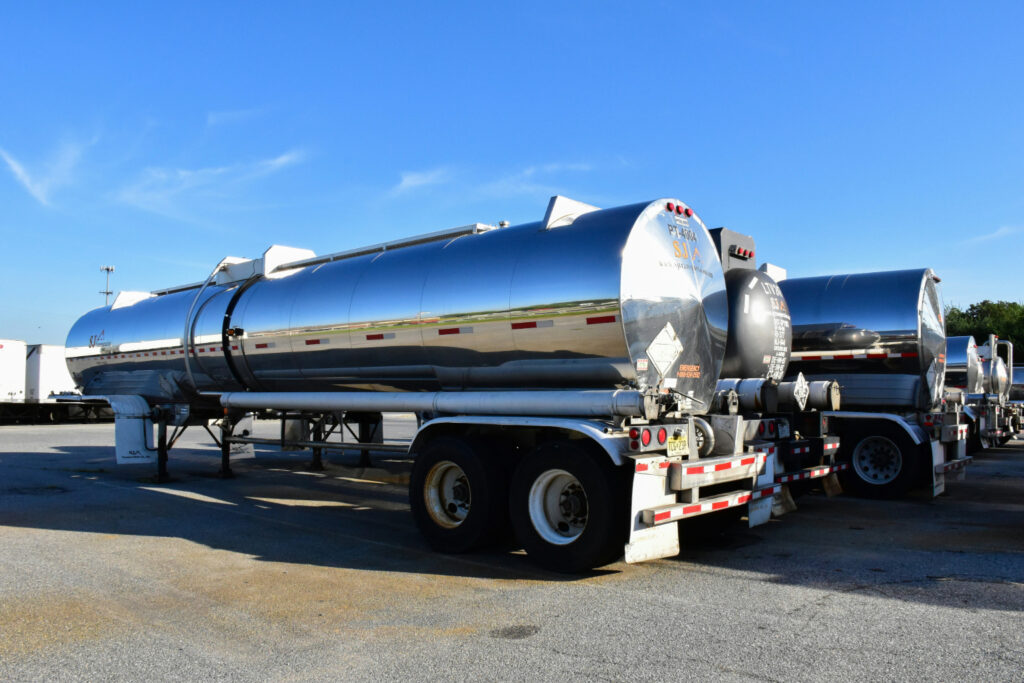Efficient fuel transportation is critical for fleets — helping them stay on schedule and within budget. But there are many ways to transport fuel, from tankers to railroads. By choosing the right method for your fleet, you can save money and boost productivity. Below, we discuss the most common types of fuel transportation to help you make the best choice.
1. Tankers
When it comes to transporting vast quantities of liquid fuel across oceans, tankers reign supreme. These colossal vessels are purpose-built to carry enormous amounts of crude oil, refined petroleum products, liquefied natural gas (LNG), and other liquid fuels. Tankers come in various sizes, from small coastal tankers to massive supertankers capable of carrying millions of barrels of oil. Despite their size and capacity, tankers require meticulous planning and adherence to strict safety protocols to mitigate the risks associated with transporting volatile substances over long distances.
2. Rail Tank Cars
Rail transportation plays a crucial role in moving fuel across land, particularly in regions with extensive rail networks. Rail tank cars are specially designed to transport various types of liquid fuels, including gasoline, diesel, and ethanol. These cylindrical containers are mounted on flatcars or specialized tank carriages and can transport significant quantities of fuel efficiently over long distances. Rail transport offers several advantages, including lower costs compared to other modes of transportation and reduced greenhouse gas emissions per ton-mile.
3. Pipeline Transport
Pipelines form the backbone of many fuel transportation networks, enabling the efficient movement of oil, natural gas, and refined petroleum products over vast distances. Underground pipelines are the preferred method for transporting crude oil and natural gas from extraction sites to refineries and distribution centers. Once refined, pipelines continue to play a crucial role in delivering gasoline, diesel, jet fuel, and other products to end consumers. Pipeline transport offers unparalleled reliability, with minimal disruptions and consistent delivery schedules.
4. Tank Trucks
For short-distance transportation of fuel from refineries to distribution centers or from distribution centers to retail outlets, tank trucks are indispensable. These specialized vehicles feature cylindrical tanks mounted on truck chassis and are designed to transport smaller quantities of fuel over road networks. Tank trucks provide flexibility and responsiveness, allowing fuel suppliers to meet fluctuating demand and deliver products directly to customers in remote or inaccessible locations.
5. Barges
In regions with extensive inland waterways or coastal regions, barges play a vital role in transporting fuel over rivers, canals, and coastal waters. Barges come in various sizes and configurations, ranging from small river barges to large ocean-going vessels. They can carry bulk quantities of liquid fuels such as gasoline, diesel, and heating oil, offering a cost-effective and environmentally friendly alternative to road or rail transport. Barge transportation reduces congestion on roads and highways while minimizing carbon emissions associated with fuel delivery.
Get Started With Fuel Transportation
The transportation of fuel involves a diverse range of freight methods, each tailored to the specific requirements of the fuel being transported and the geographical context in which it operates. Whether it’s crossing oceans aboard massive tankers, traversing continents via railroads and pipelines, or navigating inland waterways with barges, the global fuel supply chain relies on a complex network of transportation infrastructure to keep the world moving. By understanding the different types of freight for fuel, we gain insight into the intricate mechanisms that sustain our modern way of life while also highlighting the importance of safety, efficiency, and environmental responsibility in fuel transportation.
Learn how Sokolis can simplify your fuel delivery process by scheduling a free consultation.
